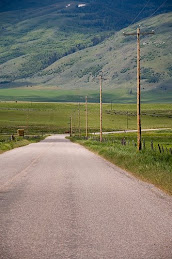"America after the Civil War was a land of shattered promises and entrenched hatreds. In the explosive South, danger took many forms: white extremists loyal to a defeated world terrorized former slaves, while in the halls of government, bitter and byzantine political warfare raged between Republicans and Democrats."
Much has been said and written in our own time about the impasse between modern-day Republicans and Democrats, together with a resulting lack of any leadership in confronting the problems that beset us, because of the partisan nature of today's politics. Today's wrangling between the two parties seems mild when compared to the warfare that raged between them in the decade or so following the Civil War.
History thus provides a sense of perspective and balance in understanding and interpreting the events of our own day.
"In The Day Freedom Died, Charles Lane draws us vividly into this war-torn world with a true story whose larger dimensions have never been fully explored. Here is the epic tale of the Colfax Massacre, the mass murder of more than sixty black men on Easter Sunday 1873 that propelled a small Louisiana town into the center of the nation's consciousness. As the smoke cleared, the perpetrators created a falsified version of events to justify their crimes. But a tenacious northern-born lawyer rejected the lies. Convinced that the Colfax murderers must be punished lest the suffering of the Civil War be in vain, U.S. Attorney James Beckwith of New Orleans pursued the killers despite death threats and bureaucratic intrigue—until the final showdown at the Supreme Court of the United States. The ruling that decided the case influenced race relations in the United States for decades."
Like the author, I had never heard of the events of that long-ago Easter Sunday in Colfax, Louisiana, and the resulting constitutional issues and political fallout that concerned the country at that time, until I read this book. I would heartily recommend it to any serious student of American history.
"An electrifying piece of historical detective work, The Day Freedom Died brings to life a gallary of memorable characters in addition to Beckwith: Willey Calhoun, the iconoclastic Southerner who dreamed of building a bastion of equal rights on his Louisiana plantation; Christopher Columbus Nash, the white supremacist avenger who organized the Colfax Massacre; William Ward, the black Union Army veteran who took up arms against white terrorists; Ulysses S. Grant, the well-intentioned but beleaguered president; and Joseph P. Bradley, the brilliant justice of the Supreme Court whose political and legal calculations would shape the drama's troubling final act."
The pervasive fraud and rampant violence associated with elections in Louisiana (and indeed in much of the South) during this period makes our little hiccup with the 2000 George Bush election, ultimately decided by the U.S. Supreme Court over irregularities in Florida, seem pale in comparison.
In many respects, we have come a long way since the difficult days of Reconstruction and its aftermath. We now have a black candidate of a major American political party—ironically the Democrats, which in that distant day was the party of white supremacists—running for the presidency of our country. I liked the concluding paragraph in Bret Schulte's editorial in this week's issue of U.S. News & World Report:
"As much as the Obama campaign trafficked in hope, the racial undercurrent is enough to make many Americans despair, regardless of political stripe. Still, most Americans are proud to live in a country that gave a self-proclaimed skinny kid with a funny name and few advantages the chance to be president. Whether or not Obama is the best candidate for the job is up to voters, who have plenty of issues to weigh. It's too bad that some voters have decided that race is one of them" (U.S. News & World Report, June 16, 2008, "One Week," 10).
I personally think there are a lot of issues against Senator Barak Obama's becoming our next president, but I do not think race should be one of them. By now we should have outgrown that.


No comments:
Post a Comment